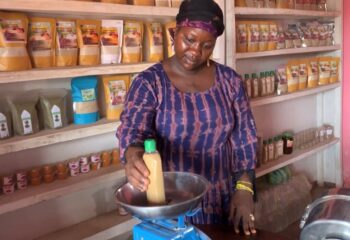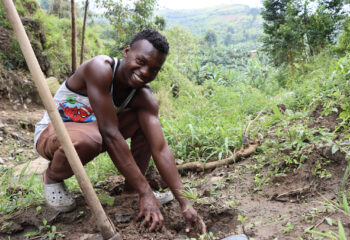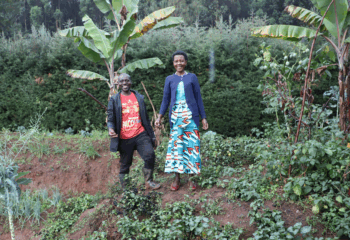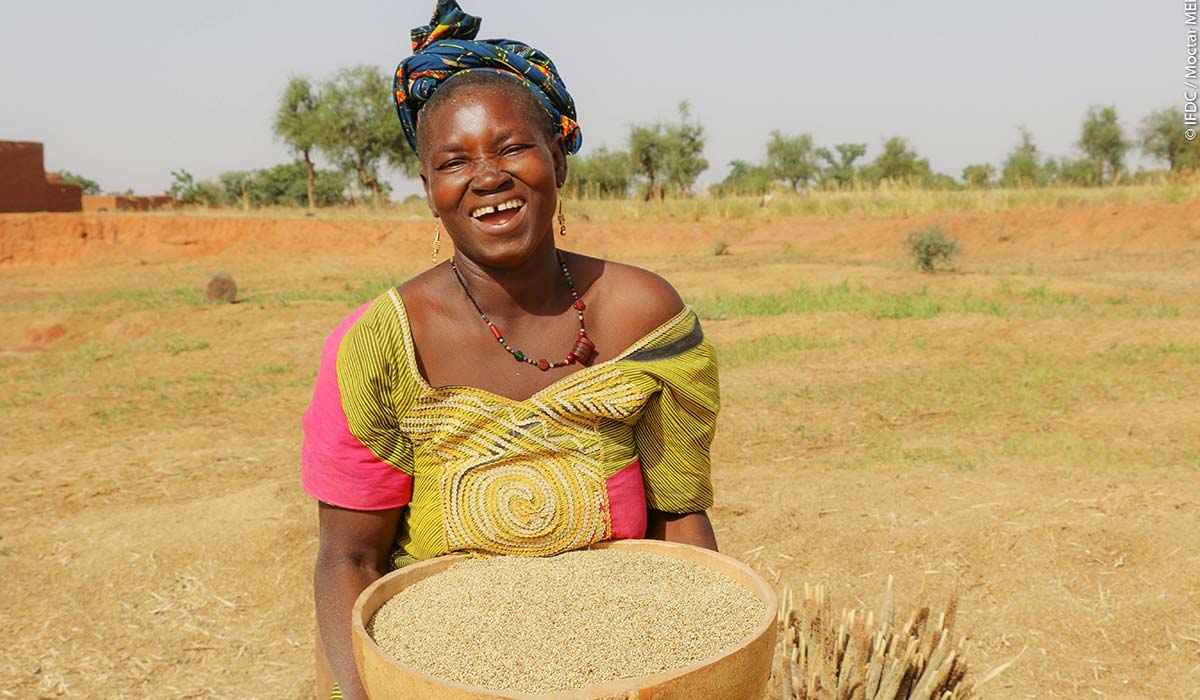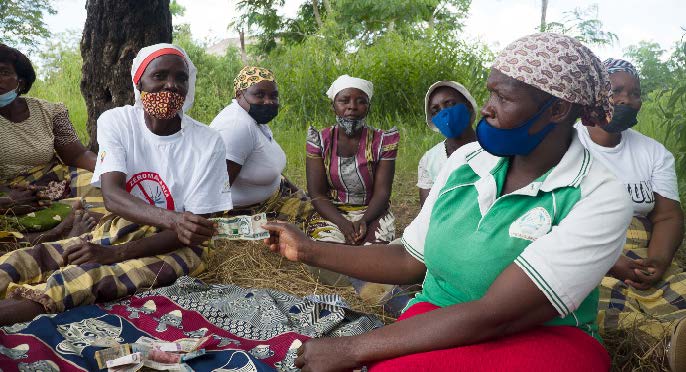
Maria unwraps some money from her pouch while chanting a few words in the Shona language before throwing the sum into a small basket in the middle of a group of women. They take turns tossing in their contributions, ceremonially, accompanied by joyful applause and ululation. This is a weekly ritual for a group of women in Manica who have come together to save money for acquiring inputs before the onset of each agricultural season.
Many smallholder farmers, especially women, face the challenge of mobilizing inputs in each agricultural season. The plight of rural women in Africa is characterized by low income and gender inequality, leaving them and their children vulnerable to malnutrition and poverty. Women also carry the burden of providing for their children on limited revenue. Inadequate resources lead to poor agricultural practices and, consequently, low yields. Many smallholder farmers in Manica Province cannot afford to buy fertilizers, certified seeds, or the other agricultural inputs necessary to produce enough for their subsistence and extra for the market.
The initiative taken by the women in Manica to create savings groups represents a huge step toward women’s empowerment and the fight against poverty. The village savings and loan association (VSLA) seeks to harness resources within the community for productivity-enhancing climate-adapted crop technologies and for mitigating cash flow and household economic constraints. It is also an important intervention toward the financial inclusion of women.
In 2021, Saruzai Inácio and her friends managed to save enough money to buy fertilizer for bean production. Saruzai said, “We realized that we should continue saving to buy fertilizer for improved production. Everything went well, and we managed to purchase inputs for bean production. Each member received their own bag of fertilizer.” Fertilizer application increased productivity, resulting in bumper harvests that further motivated the women to continue their savings strategy.
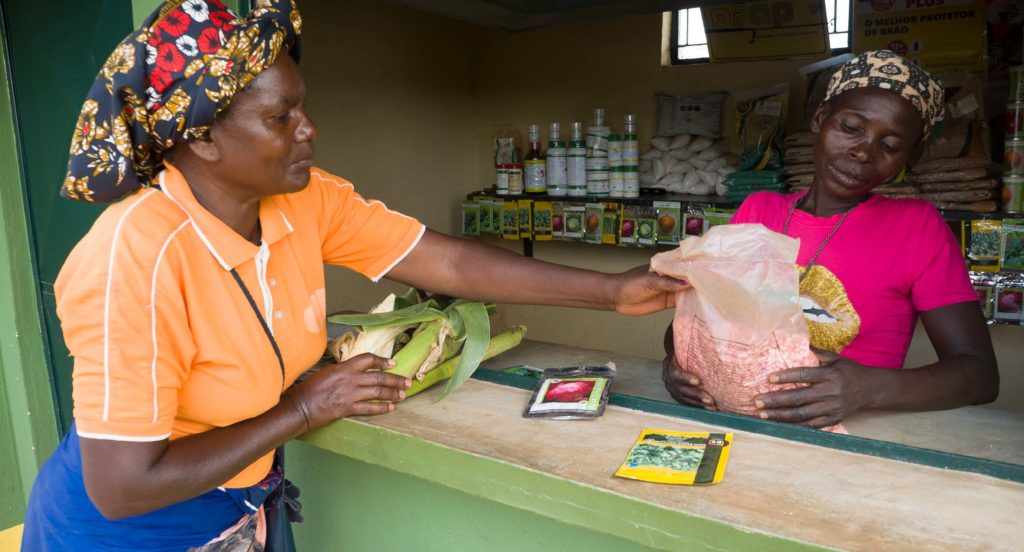
Contributions vary by member every month. The more participants per group, the greater the income. For safekeeping and transparency, the contributions are registered and deposited into a bank account managed by the TEAMS project implementing organization in Manica, AKSM. Periodic reports are available to the group members for planning and accounting purposes. In 2021, the group managed to save MZN 1,498,338 and mobilize a significant number of resources for the group’s expansion and sustainability.
As the following agricultural season approaches, each member will take out a loan from this fund, geared specifically toward agricultural inputs. Usually, a group member receives the loan along with information for producing a selected crop, payable at the end of the season through her sales of harvested products.
The TEAMS project, through demonstration plots, has trained more than 60,000 women in Manica and Sofala provinces on how to produce a wide variety of vegetables, legumes, and cereals using climate-smart agricultural practices. The opportunity to produce a wide range of crops means a healthier diet for women and children. “We are content because our children are now eating a healthy diet, and we are also making some profits from sales. Our levels of financial literacy are also improving. Some of us had poor financial discipline, but as a result of the savings group, I can now transfer the lessons in managing money at the household level,” said Saruzai with a broad smile. The VSLA training also encompassed recordkeeping and practical engagement so that all group members have a financial management mindset, which is essential for commercial production.
The women get together regularly to plan and share ideas about the production of beans, tomatoes, maize, and other cash crops. Besides individual investments, the group also engages in joint ventures, where they buy a piece of land and work together to produce vegetables for the market. The proceeds from these projects are reinvested into the savings group, generating a larger capital income base. In addition, extra income for women means they can set up other small businesses and own property, thus diversifying their revenue streams.
Determining adequate input needs is very important, as each agricultural season is characterized by differing rainfall patterns due to climate change.
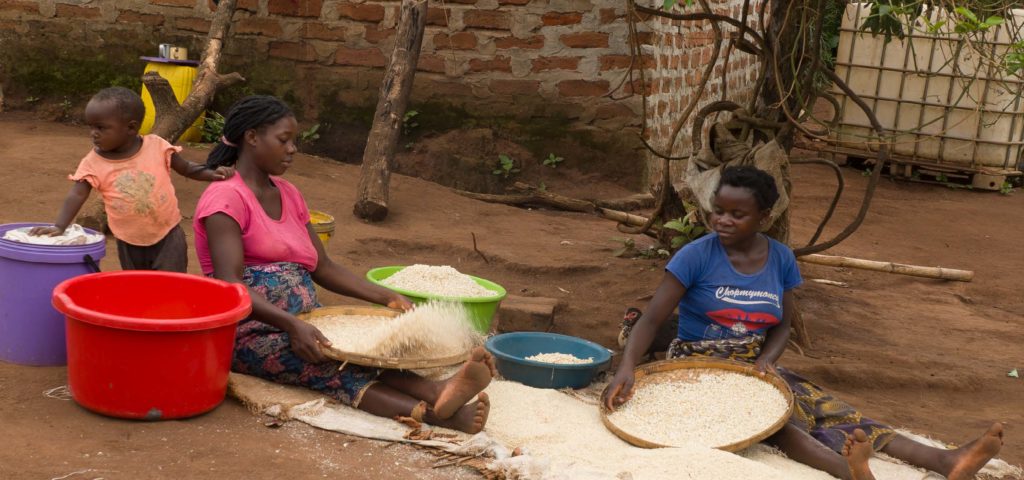
The VSLA program introduced the agricultural fund to savings groups and linked them with local agro-dealers for the timely provision of inputs. These synergies guarantee the availability of inputs at reasonable prices, enabling women to make a significant profit. In addition, shortening the distance between agricultural input suppliers and smallholders drastically reduces the cost of production. The wide network of agro-dealers, mainly women, in these rural communities is going a long way in supporting their peers in the agricultural value chain.
Planned educational events by the TEAMS project have enabled more than 2,000 women in Manica Province to protect their income, use it effectively to buy inputs for production, and profit for reinvestment. The progress made by the saving groups has also attracted the participation and support of men, further increasing the diversity and capacity of smallholder farmers.

